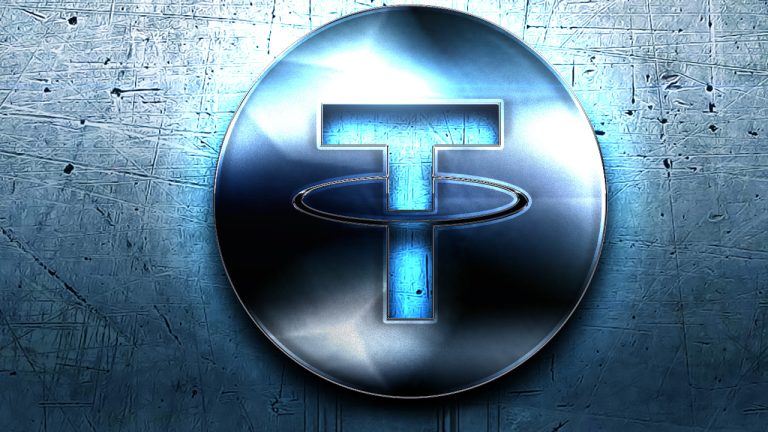 Stablecoin issuer Tether has slammed the”baseless” claims that it illegally liquidated Celsius Network’s bitcoin collateral. Tether accused the crypto lender of trying to “improperly impose the costs of Celsius’ mismanagement and failure on Tether.” Shameless Litigation Stablecoin issuer Tether Holdings Ltd. has rejected the “baseless” claims by the bankrupt crypto lender Celsius Network that the […]
Stablecoin issuer Tether has slammed the”baseless” claims that it illegally liquidated Celsius Network’s bitcoin collateral. Tether accused the crypto lender of trying to “improperly impose the costs of Celsius’ mismanagement and failure on Tether.” Shameless Litigation Stablecoin issuer Tether Holdings Ltd. has rejected the “baseless” claims by the bankrupt crypto lender Celsius Network that the […]
A May 3 filing to the United States Bankruptcy Court brings new objections to a motion that aimed to redact customer identities.
Four media outlets in the United States have continued efforts to get the identities of non-U.S. FTX customers revealed, filing new objections to a previous motion to seal their identities.
Bloomberg, Dow Jones, The New York Times and the Financial Times first filed a motion objecting to FTX and the Official Committee of Unsecured Creditors being authorized to redact and withhold customer information on Jan 11.
While the court previously had heard similar arguments by the four firms, the May 3 filing made a new objection to the Committee’s motion to seal the identities of non-U.S. customers.
The media outlet's most recent argument is that there is no legal basis to redact the names pursuant to non-U.S. data privacy laws.
The media giants argued that under section 105 of the Bankruptcy Code — the provision which grants the bankruptcy court judicial power — there is no part that permits foreign law to override the right of access to information under U.S. constitutional and statutory law:
“At bottom, Movants desire to avoid ‘enforcement of the public disclosure requirements of U.S. bankruptcy law’ [...] furnishes no basis for sealing.”
“The law of the United States — constitutional and statutory — guarantees the public a strong presumptive right to inspect bankruptcy filings. That right cannot be abrogated by a party’s assertion of legal obligations under foreign law,” the media firms added.
The first argument raised — which was claimed in an earlier filing — was that the names of FTX’s creditors do not constitute “confidential commercial information.”
The second — also raised in an earlier filing — is that such disclosure wouldn’t subject the creditors to “undue risk.”
Related: FTX has recovered $7.3B in assets, will consider rebooting exchange
FTX and the committee have until May 4 at 4:00 pm Eastern Time to submit an objection.
The hearing date for the filing will take place on May 17 at 1:00pm.
Magazine: Can you trust crypto exchanges after the collapse of FTX?

The decision comes after a Jan. 8 filing by FTX’s lawyers, who argued that public disclosure could create an undue risk of identity theft or unlawful injury to FTX creditors.
The names of up to nine million FTX customers are set to remain confidential for at least three more months following the latest ruling in FTX bankruptcy proceedings.
The decision was reportedly made by Judge John Dorsey in the Delaware-based bankruptcy court on Jan. 11 in response to a 168-page filing by FTX on Jan. 8, which requested the court to withhold confidential customer information.
Judge Dorsey said that he remains “reluctant at this point” to disclose the confidential information, as it may put creditors “at risk,” despite increased pressure from several media outlets:
“We’re talking about individuals here who are not present – individuals who may be at risk if their name and information is disclosed.”
Days earlier, FTX lawyers argued “that disclosure of the information would create an undue risk of identity theft or unlawful injury to the individual or the individual’s property” and that the court should use its “broad discretion” under the U.S. Bankruptcy Code to protect those affected by FTX’s collapse.
In late December, a group of non-U.S. FTX customers also pushed the Delaware bankruptcy court to keep customer information private, arguing in a Dec. 28 joinder filing that public disclosure would cause “irreparable harm.”
Judge Dorsey’s decision does however run contrary to most bankruptcy proceedings where creditor information is disclosed — which is what happened in cryptocurrency lender Celsius’ bankruptcy proceedings in October.
Related: Getting funds out of FTX could take years or even decades: Lawyers
The Delaware-based bankruptcy court hasn’t been as kind to FTX equity holders, having released a Jan. 9 document that disclosed the investors expected to be wiped out and the number of shares they held with FTX.

Among those included NFL legend and former FTX brand ambassador Tom Brady, his ex-wife Gisele Bündchen, tech entrepreneur Peter Thiel and Shark Tank investor Kevin O’Leary.
It appears that progress is being made though, with FTX reported to have already recovered $5 billion in cash and cryptocurrency, FTX attorney Andy Dietderich said in a Jan. 11 statement.
According to early bankruptcy filings in November, more than 1 million creditors were speculated to be involved, with $3 billion being owed to the 50 largest creditors alone.